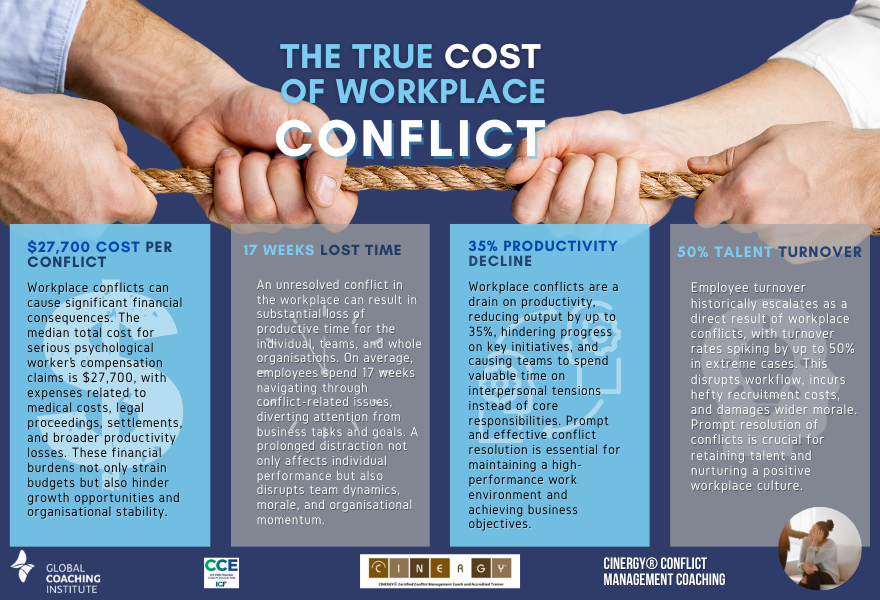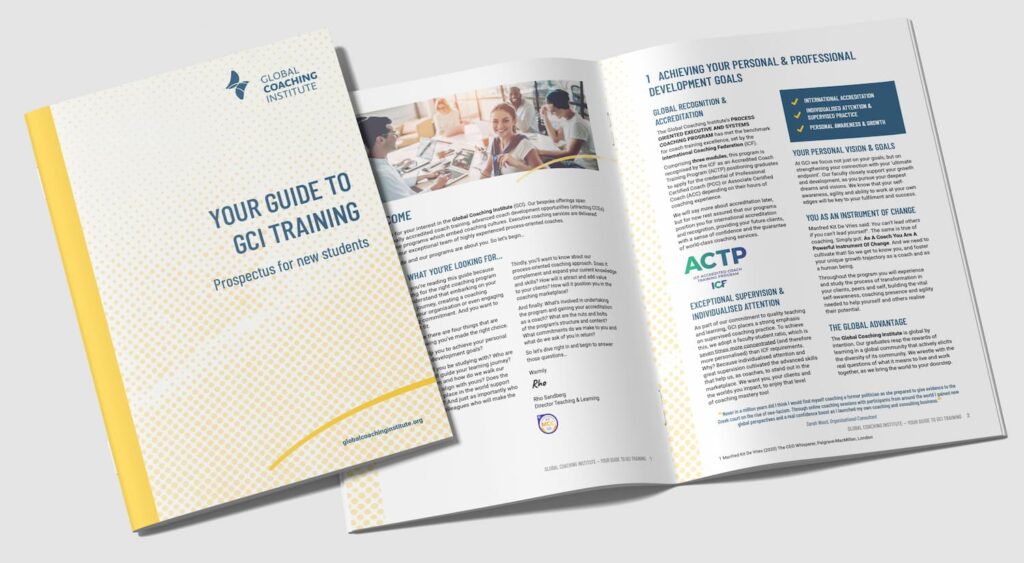These days leaders need to be masters of change, capable of both inner agility and leading others on transformational journeys.
The role of an executive coach is to help leaders build these capabilities. They support leaders to understand the dynamics of change from the inside-out.
Process-oriented coaches and change agents bring unique expertise to understanding systems in a state of flux. Rather than being seduced by the new (and usual temporary) destination, they are interested in the dynamic processes underpinning change and transformation. At GCI we share with our clients these secrets.
1. Embrace Disequilibrium
A leader’s role is to encourage states of disequilibrium in order for growth to occur. By growth, I mean business development and re-invention, as well as personal and professional growth.
In order to drive transformation, leaders need to get comfortable with these states of disequilibrium and the impacts they have on business-as-usual and the people around them.
2. Look for the Gold
Unfortunately, some leaders view disturbances as merely problematic. They resist pending change and just want to get on with the job or help the workforce get back to life as they knew it. Sadly their organisations suffer, often in a prolonged manner, due to a lack of meaningful leadership and entrenched resistance. They go through the pain without getting to the gold.
Process-oriented leaders bring a deep appreciation of the disruptive nature of change. Rather than defending against it, they display a forensic curiosity toward potentially threatening forces within their sector.
The interest, mindset and finely-honed attention of these leaders means they are better equipped to discover the learnings and gold within any disruptive event.
3. Become A Provocateur
At times disequilibrium is a result of external forces, while on other occasions, leaders must intentionally disrupt their organizations in order to stimulate innovation or generate business efficiencies.
Strategic leaders and thinkers, see themselves as agents of change, provocateurs and boundary riders. They are simultaneously part of a system and able to act independently of its current norms and assumptions. They sit comfortably with dual awareness and dual roles.
4. Understand Your Environment
Leaders and change agents need to establish a rich understanding of the people and environments they are about to propel into states of motion and disequilibrium.
Such insight is so important that no leader can afford to rely only on their own insight. Instead they must tap into the collective intelligence of diverse stakeholders and the larger system.
5. Map The Dynamics of Change
The GCI Coaching and Transformation Roadmap(TM) is a dynamic tool used by Process-oriented practitioners to build a rich, shared understanding of the change environment.
A genuinely dynamic tool – the map is constantly evolving, deepening thinking and encouraging discovery. It provides clarity on precisely what needs to change, identifies levers of change and how the organisation has defended against such changes in the past or is likely to resist change moving forward.
6. Track the Process
Organisational transformational doesn’t happen overnight. It is multi-faceted with success building on success and fear and resistance inevitable companions from time to time. Process oriented practitioners learn to welcome even the apparent disruptions to their innovation efforts. They know that all feedback, even negative feedback, is data to be taken on board and analysed.
A key role of the Process-oriented coach is to help leaders become more flexible, adaptive and responsive in the face of push-back. Process-oriented practitioners embrace and navigate all forces external to and within the change environment.
7. Open Yourself To Change
At the outset of this article, I spoke about the need for inner agility and understanding the dynamics of change from the inside-out. Transformation is not something that can be lead or coached from the sidelines. It is only when we commit to personal journeys of transformation that we really appreciate what we ask of others on occasion.
To become a truly masterful leader of organisational or personal change, it is essential that leaders cultivate self-awareness and first hand understanding of the highs and lows of the transformational journey. Through this process, practitioners cultivate the capacity to become genuine instruments of change.
If you are interested in learning more about the GCI Coaching and Transformation Roadmap(TM) or a process-oriented approach to transformation and change management, please drop us a line.




